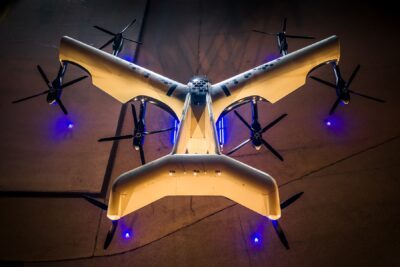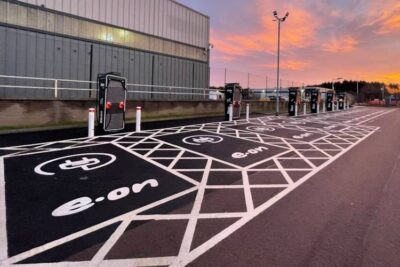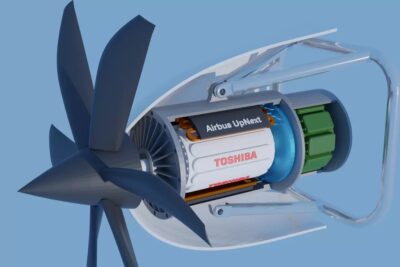ZeroAvia reveals investors and partners with Ecojet airlines
ZeroAvia closed its Series C financing round in September and has now revealed that 116 million US dollars (just under 106 million euros) was raised. Investments have been co-led by Airbus, Barclays Sustainable Impact Capital and NEOM Investment Fund (NIF), already revealed in September and joined by UK Infrastructure Bank, Breakthrough Energy Ventures, Horizons Ventures, Alaska Airlines, Ecosystem Integrity Fund, Summa Equity, AP Ventures and Amazon Climate Pledge Fund.
The investment should enable ZeroAvia to “accelerate the company’s journey to certification of its first engines and advance R&D that will scale the clean propulsion technology for larger aircraft.”
Airbus is an investor and a partner to ZeroAvia, as the two companies have also agreed to work together on certification approaches for hydrogen propulsion systems. Both companies also want to cooperate in areas such as the storage of liquid hydrogen, flight and ground tests of fuel cell propulsion systems and the development of infrastructure for hydrogen refuelling.
Airbus itself is also working on hydrogen systems. This summer just passed, the industry giant tested a hydrogen engine concept with an output of 1.2 MW on the ground. With the ZEROe program, Airbus has a series of hydrogen-based aircraft concepts in the works.
ZeroAvia partners with Ecojet airlines
ZeroAvia has also announced an agreement with the newly launched airline Ecojet to provide up to 70 hydrogen-electric, zero-emission engines. Ecoject was founded by green entrepreneur Dale Vince OBE earlier this year and aims to offer flights with ZeroAvia’s hydrogen-electric engines in 2025 – subject to certification.
Ecojet is planning to first start its operations in 2024 with conventionally powered aircraft on routes to and from Edinburgh. The fleet is to successively be retrofitted with hydrogen-electric powertrains with the goal of becoming the world’s first electric airline.
Ecojet aims to retrofit some of its aircraft with ZeroAvia’s ZA600 engines, capable of powering aircraft with up to 20 seats. The new airline will be working with Monte, ZeroAvia’s preferred lessor partner, to bring the ZA600 engine technology to market. ZeroAvia envisages the type certification of the ZA600 in 2025.
The new airline operating from Edinburgh, Scotland, has also placed a larger order for the more powerful ZA2000 engine, designed for up to 80-seat regional turboprops. The plan is for these to enter service in 2027.
ZeroAvia revealed a definitive purchase agreement with lessor Monte for 100 hydrogen-electric aircraft engines earlier this year. Ecojet has become the lessor’s first confirmed customer and will take up the production slots that ZeroAvia has reserved for Monte. For its part, Monte will provide financing for Ecojet’s powertrain purchase, installation and operation.
The three companies, ZeroAvia, Ecojet and Monte, are planning to “work together with airports and other industry partners to identify and finance the first pathways to hydrogen-electric commercial operations,” as ZeroAvia now states.
In the summer of this year, ZeroAvia signed agreements to provide both of the above-mentioned aircraft engines to aircraft to companies in Europe and North America. This year, ZeroAvia already signed cooperation agreements with Rotterdam Airport and Shell, among others, and aims to enter the cargo drone space with Natilis.
Update 13 September 2024
ZeroAvia has extended its Series C financing from $116 million to a total of $150 million. Recent investments from American Airlines, International Airlines Group (IAG) and ITOCHU Corporation are joined by a £20 million investment from the Scottish National Investment Bank.
zeroavia.com (capital), zeroavia.com (Ecojet), zeroavia.com (update)





0 Comments